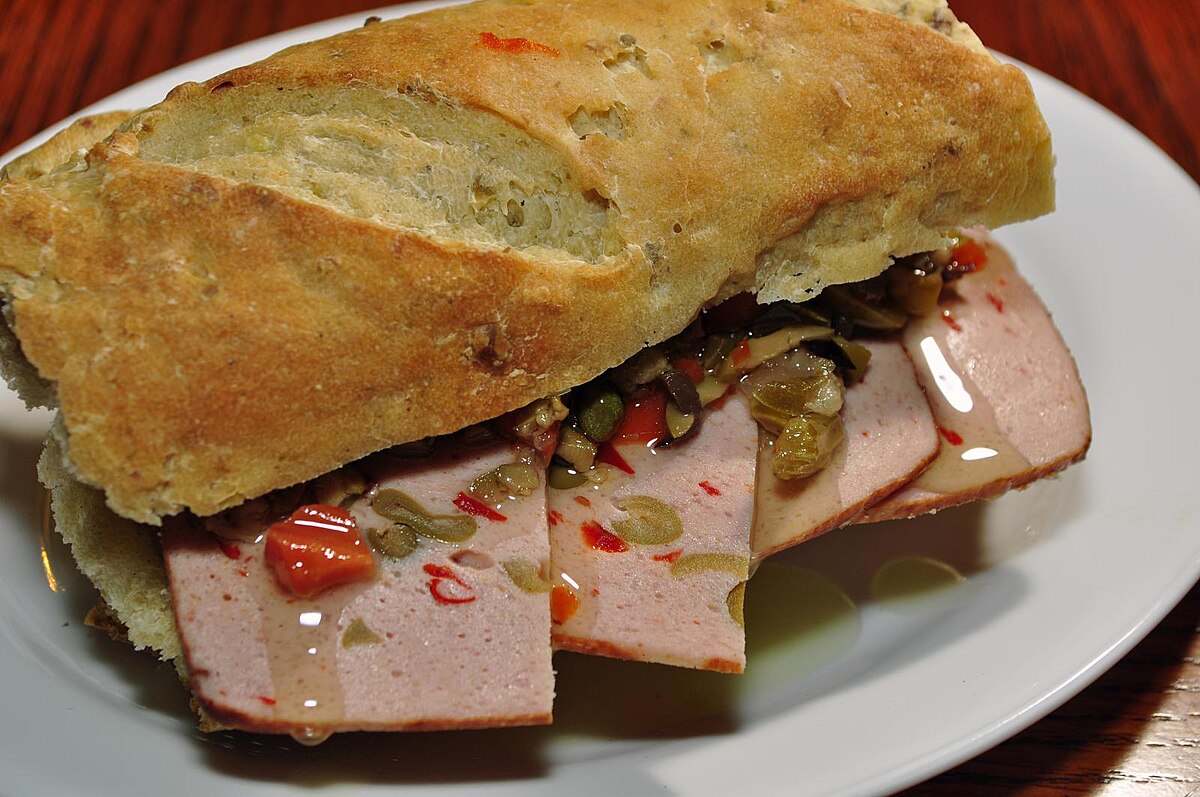
Olive loaf is a popular deli meat that combines the flavors of juicy olives and savory meat into a delicious and versatile product. Whether you enjoy it in sandwiches, salads, or as a snack, olive loaf is sure to satisfy your taste buds. But besides its delicious taste, olive loaf also offers various nutritional benefits. In this article, we will explore the nutrition facts of olive loaf and discover why it can be a healthy addition to your diet. From the protein content to the vitamins and minerals it provides, we will delve into all the essential nutrients that make olive loaf a nutritious choice. So, let’s dive in and uncover the 15 fascinating nutrition facts about olive loaf!
Key Takeaways:
- Olive loaf is a protein-packed, heart-healthy, and low-calorie option, making it a delicious and satisfying choice for sandwiches, wraps, and salads.
- With its rich flavor, low sodium, and gluten-free options, olive loaf is a versatile and convenient ingredient suitable for various diets and quick meals.
High in Protein
Olive loaf is a great source of protein, with each serving containing approximately 10 grams.
Low in Calories
For those watching their calorie intake, olive loaf is a good choice as it typically contains around 100 calories per serving.
Heart-Healthy
Olive loaf is made with heart-healthy ingredients such as olives and olive oil, which are known for their beneficial effects on cardiovascular health.
Rich in Vitamins and Minerals
One serving of olive loaf provides essential vitamins and minerals, including vitamin B6, iron, and calcium.
Gluten-Free Option
If you follow a gluten-free diet, you’ll be happy to know that there are olive loaf varieties available that are free from gluten.
Low in Saturated Fat
Olive loaf is typically low in saturated fat, making it a healthier choice compared to other processed meat products.
Source of Healthy Fats
The olives used in olive loaf are a good source of monounsaturated fats, which are beneficial for heart health.
Contains Antioxidants
Olive loaf contains antioxidants from the olives, which can help protect the body against damage from harmful free radicals.
Versatile Ingredient
Aside from being enjoyed on its own, olive loaf can be used as a delicious ingredient in sandwiches, wraps, and salads.
Low in Sodium
For individuals on a low-sodium diet, there are low-sodium options of olive loaf available with reduced salt content.
Rich Flavor Profile
Olive loaf has a unique and tasty flavor profile, combining the richness of olives with the savory taste of cured meats.
Suitable for Keto Diet
Olive loaf can be included in a ketogenic diet, as it is low in carbohydrates and high in fats and protein.
Source of Iron
Olive loaf contains iron, an essential mineral that plays a crucial role in the formation of red blood cells.
Quick and Convenient
Olive loaf is a convenient food option for those who need a quick and easy meal or snack.
Delicious and Satisfying
Above all, olive loaf is known for its delicious taste and satisfying texture, making it a favorite among food enthusiasts.
Conclusion
In conclusion, olive loaf is a delicious and versatile food that offers several nutrition benefits. It is made from a combination of ground meat and olives, providing a unique and savory flavor. Olive loaf is a good source of protein, essential for building and repairing tissues in the body. It also contains healthy fats from the olives, which are important for brain function and heart health. Additionally, olive loaf is low in carbohydrates, making it a suitable option for those following a low-carb or ketogenic diet. It is also rich in vitamins and minerals, including iron, zinc, and vitamin B12.
Whether you enjoy olive loaf on its own, in a sandwich, or as part of a charcuterie board, you can feel good about indulging in this tasty treat. Just be mindful of portion sizes to ensure you are consuming it in moderation as part of a balanced diet.
FAQs
1. What is olive loaf?
Olive loaf is a type of lunchmeat that is made by combining ground meat, typically a combination of pork and beef, with finely chopped or sliced olives. It is then seasoned and baked or cooked until fully cooked and ready to eat.
2. Is olive loaf healthy?
Yes, olive loaf can be a healthy food choice. It is a good source of protein and healthy fats from the olives. However, it is important to consume it in moderation as it can be high in sodium. It is also recommended to choose varieties that are lower in preservatives and additives.
3. How many calories are in olive loaf?
The number of calories in olive loaf can vary depending on the specific brand and recipe. On average, a 2-ounce serving of olive loaf contains around 150-200 calories.
4. Can I eat olive loaf on a low-carb diet?
Yes, olive loaf can be consumed on a low-carb diet. It is generally low in carbohydrates, making it a suitable option for those following a low-carb or ketogenic diet. However, it is important to check the label for any added fillers or carbohydrates.
5. How can I incorporate olive loaf into my meals?
Olive loaf can be enjoyed in various ways. It can be sliced and eaten on its own, served in sandwiches or wraps, or used as a topping for salads or pizzas. It can also be included in charcuterie boards or used as a filling for stuffed peppers or mushrooms.
Was this page helpful?
Our commitment to delivering trustworthy and engaging content is at the heart of what we do. Each fact on our site is contributed by real users like you, bringing a wealth of diverse insights and information. To ensure the highest standards of accuracy and reliability, our dedicated editors meticulously review each submission. This process guarantees that the facts we share are not only fascinating but also credible. Trust in our commitment to quality and authenticity as you explore and learn with us.
